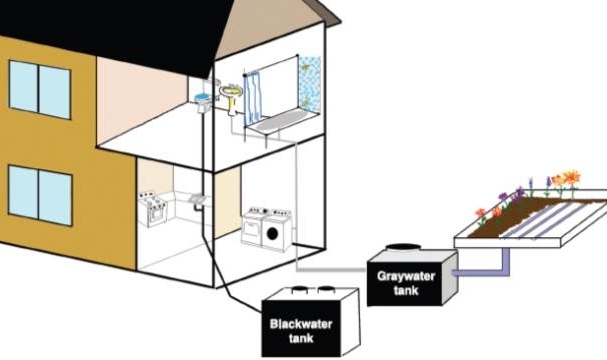One collection option, where permitted by local regulation, is to split wastewater before any treatment occurs. Wastewater consists of blackwater (wastewater from toilets and food preparation areas) and graywater (wastewater from all other plumbing fixtures).
Blackwater contains higher concentrations of nitrogen and human pathogens, and decomposes more slowly than graywater. Traditionally, systems have combined blackwater and graywater for treatment, but occasionally they are treated separately.
Although residential graywater has fewer large solids than blackwater, graywater still contains pathogens and needs treatment. Graywater can be reused for irrigation, toilet flushing, or other uses where potable water treatment is not necessary in some jurisdictions. The elimination of blackwater reduces hydraulic and organic loading, allowing use of a smaller onsite wastewater treatment system.

